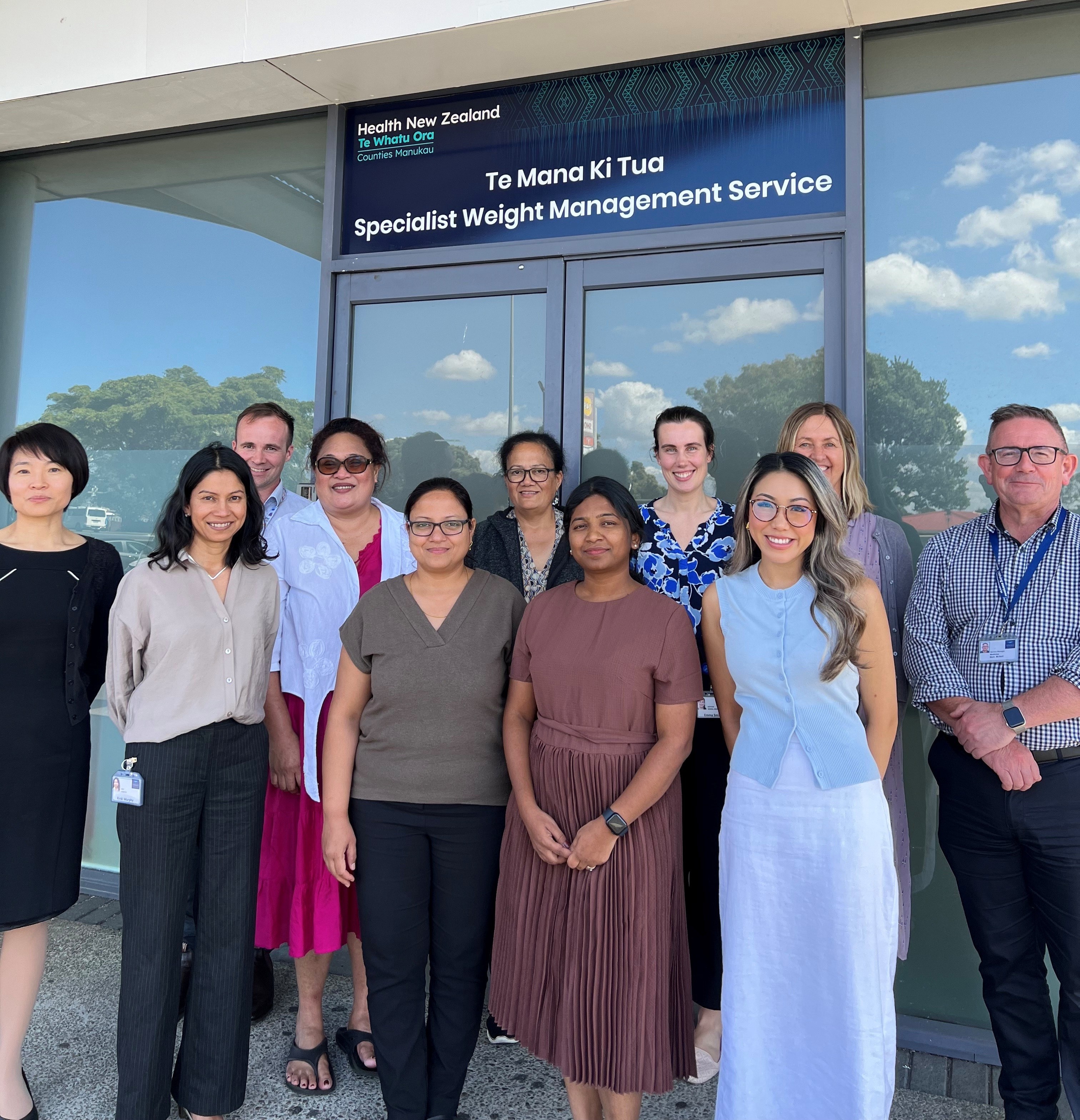Case Study
Summer Studentship 2024-2025: Crystal Tan
Crystal Tan researched Triaging Suitability of Young Adults with Type 2 Diabetes in Counties Manukau Diabetes Remission Program: How Accurate are Routine Clinical Data-Based Classifiers for Diabetes.
1. Can you tell us how you got involved with medical research?
Throughout my previous undergraduate degree in Physiology and my current studies in Medicine, I’ve always found myself drawn to understanding how research translates into improving clinical outcomes. I was particularly inspired by how research can uncover gaps in healthcare and drive meaningful change. Getting involved in research has allowed me to develop critical skills, contribute to advancements in medicine, and explore ways to improve health equity in Aotearoa New Zealand.
2. Could you provide a brief overview of the key aspects your study will explore?
My research focuses on identifying young adults (aged 15–28) in Counties Manukau who may benefit from Te Mana Ki Tua (TMKT), a specialist weight management service offering a type 2 diabetes (T2D) remission program. Currently, no standardised system accurately classifies diabetes type using routine clinical data. Since young adults with T2D have high risk of complications and more rapid progression, they are all eligible for referral to secondary care clinics at Counties. For young adults with T2D, engagement with routine diabetes clinical care focussing on glycemic control through medication escalation and monitoring of capillary glucose is low. Their interest and engagement in diabetes remission through intensive weight management remains to be seen. Identifying eligible young adults with T2D from Health Intelligence and Informatics (HII) coded data is likely to yield a far greater proportion than relying on those known to attend secondary care diabetes clinics.
This study evaluates the accuracy of HII coding, which assigns diabetes type based on laboratory (raised HBA1c, glucose values), dispensing (glucose lowering therapy) and ICD-10 inpatient codes. Clinical records of HII coded young adults with T2D were manually curated by using "gold standard" definitions using clinic letters, referral letters, in addition to laboratory data, medication dispensing records and any inpatient discharge records. In addition, it examines the proportion who are eligible for TMKT diabetes remission and the proportion of such individuals who are interested in engaging with TMKT diabetes remission. Findings from this research could improve patient identification for diabetes remission and proactive diabetes care services, enhancing access to targeted interventions in our vulnerable populations.

Pictured above: Crystal and her TMKT research team
3. Can you tell us about your motivation and inspiration for your research?
Diabetes is a growing health crisis in Aotearoa, and young adults—particularly Māori and Pacific populations—are at high risk of severe complications. Yet, many remain outside the standard care pathways.
I was drawn to this research because it aims to bridge this gap by improving how we identify and reach those who need support the most. By refining diabetes classification methods, we can ensure that more people receive timely, targeted interventions that could change their long-term health trajectory. I feel privileged to contribute to this important work and help generate insights that may improve health equity in Aotearoa New Zealand.
4. Can you elaborate on how your research project will positively impact the lives of individuals in Aotearoa living with diabetes?
Accurate and efficient diabetes classification is essential for equitable access to care. My research will help improve how we identify young adults eligible for T2D remission programs, allowing more people to access specialised intensive weight management and lifestyle support beyond pharmacological management. In the long term, this could lead to better glycaemic control, reduced complications, and improved quality of life. Additionally, by evaluating how many eligible individuals engage with the program, we can refine outreach strategies to maximise participation and reduce the burden of T2D in Counties Manukau.
6. The Summer Studentships are made possible thanks to donations to the Diabetes Research Foundation. Please tell us how important these Summer Studentships are to others looking to conduct research?
I believe that these summer studentships are invaluable. Not only do they provide aspiring researchers, such as myself, with hands-on experience in conducting meaningful studies that can influence clinical practice, but also the opportunity to develop critical skills that we can carry with us throughout our careers.

